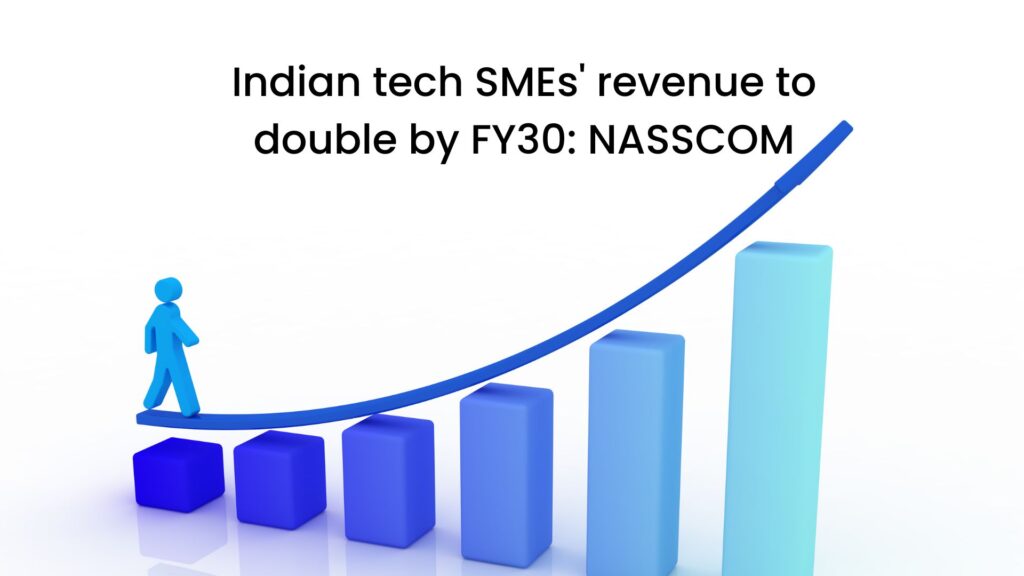According to a research titled “Indian Tech SMEs” released on Tuesday by industry group Nasscom, Indian small and medium-sized enterprises (SME) in the tech industry are expected to produce revenue of $35-40 billion by FY30, up from $15-20 billion in FY23.

Digital technology SMEs that provide cloud services, advanced analytics, and AI solutions will account for 35- 40% of total IT SME income by FY30, up from 21% in FY23, according to the survey. The whole income of India’s technology industry is predicted to treble to $500 billion by FY30.
According to NASSCOM, 60% of tech SMEs are BPOs, 20-25% are in IT services, and 15% provide software products or software as a service (SaaS). The industry association defines tech SMEs as firms that primarily provide legacy IT, BPM, and subcontracting services, whereas digital tech SMEs provide cloud and digital transformation services as well as advanced analytics and AI/ML.
According to the report, 75% of tech SMEs’ clientele are either Indian SMBs or foreign tech SMEs. The majority of these technology SMEs continue to rely on their founder networks for commercial possibilities.
Furthermore, the number of individuals working for IT SMEs in India is predicted to expand at a CAGR of 10.1% from over 550,000 in FY20 to 740,000 in FY23, according to the report. It was also discovered that 70% of workers in tech SMEs were located in six Indian cities, including Delhi, Mumbai, Hyderabad, Bangalore, Chennai, and Pune, while the remaining 22-25% were from developing centres like Jaipur, Coimbatore, and Trivandrum.
In terms of marketing budgets, three out of every four tech SMEs had none or very little. Their R&D spending was as low as 0.1-0.2% of their income, whereas the more successful ones spent 3-5% of their revenue on R&D.
“The Indian IT sector has more than 10,000 SMEs dedicated to providing traditional and digital services to tech buyers globally and domestically,” said NASSCOM President Debjani Ghosh.
Ghosh also stated that the transition of traditional tech SMEs to digital services is imminent.
According to NASSCOM, digital growth will surpass demand for traditional IT SMEs. Demand for developing technology will disrupt many legacy services, have an influence on existing positions and skills, and result in more flexible staffing arrangements.
“Supportive government policies, incentive schemes, and specialised SME-industry-academia connections will further augment the sector’s growth and help accomplish the double digital revenue growth target by FY30E,” Ghosh explained.